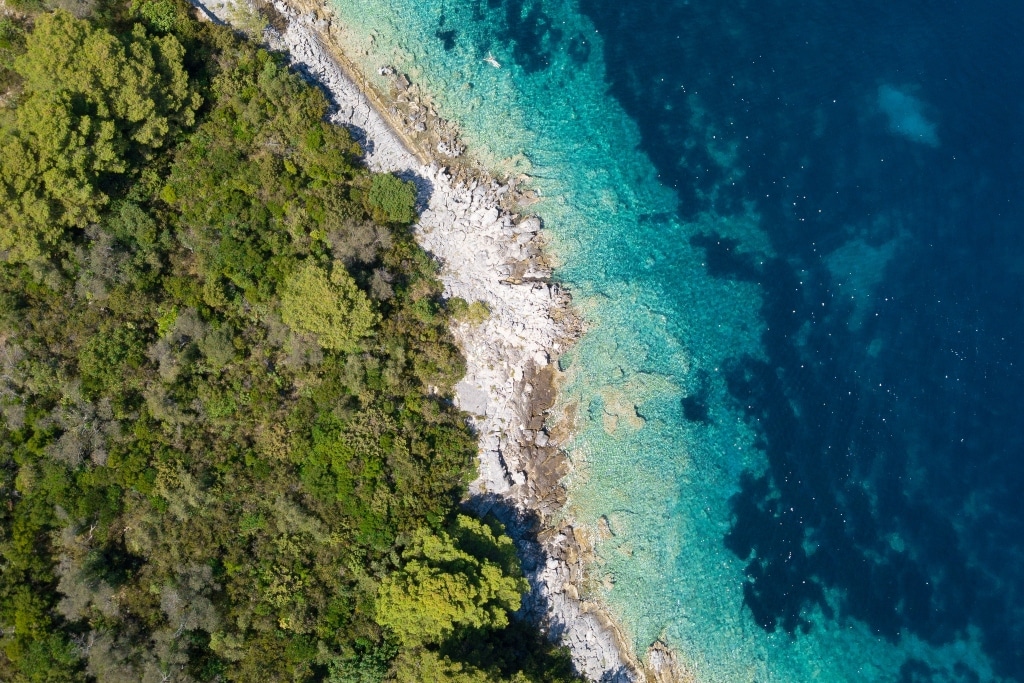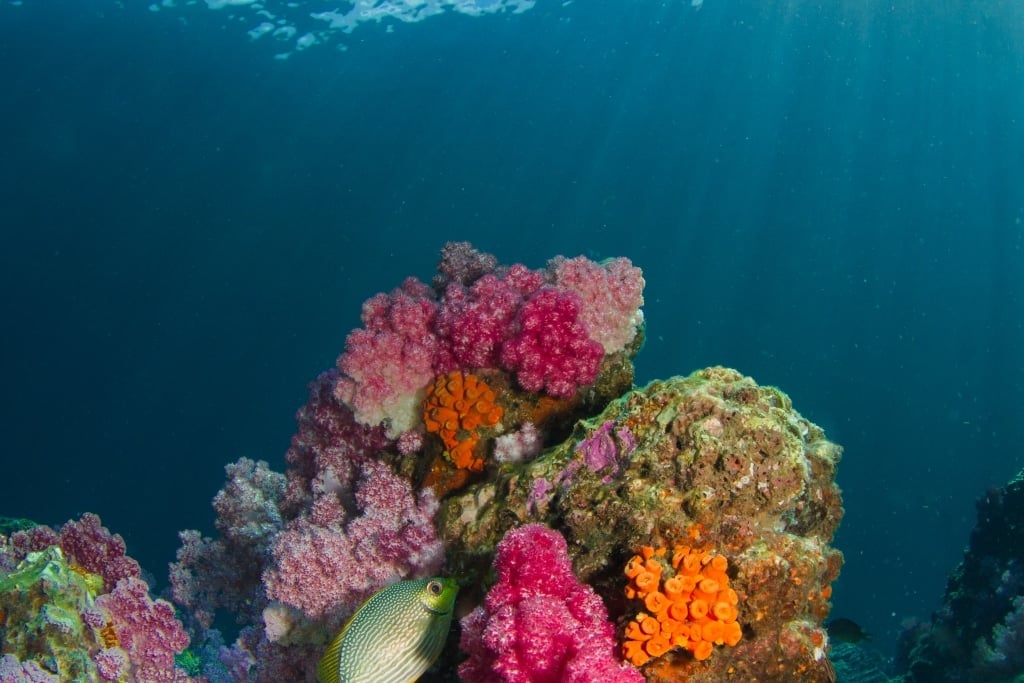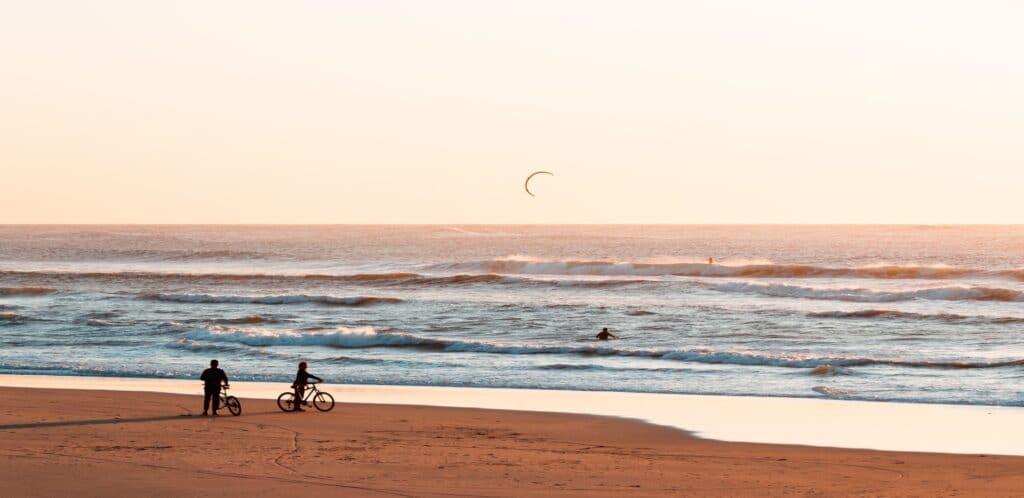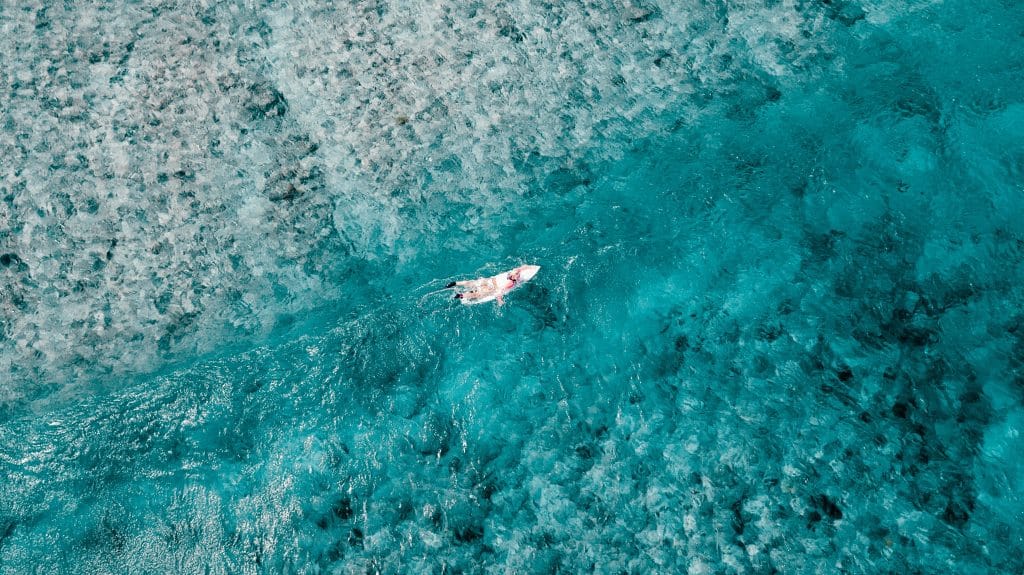PART 3 - Why Our Oceans Are So Important / Interview with Craig Downs

By Julia Beyer - May 2, 2022
You wrote that coral reefs have superpowers. Could you just explain to our audience why coral reefs are so important for our ecosystem?
Coral reefs are a super organism in that 25% of the biodiversity in oceans can be found on coral reefs. When our coral reefs start dying we’re losing a broad number of species to extinction. 80% of the Caribbean coral reefs disappeared before 2000. We’re seeing this impact economically, not just with tourism, but also fisheries because most coastal communities depend upon fisheries supplied by coral reefs to feed their population as well as to feed tourism. You know, if you go to Hawaii, it’d be nice to have some Mahi Mahi (Comment by Suntribe: traditional fish to eat on Hawaii), if you go to the Canary islands, it would be nice to have fish from the Canary islands.
It’s always great to have that local cuisine, but if those reefs are gone, then all that has to be imported in and it’s getting harder and harder to find, and it’s making prices of these commodities more and more expensive.
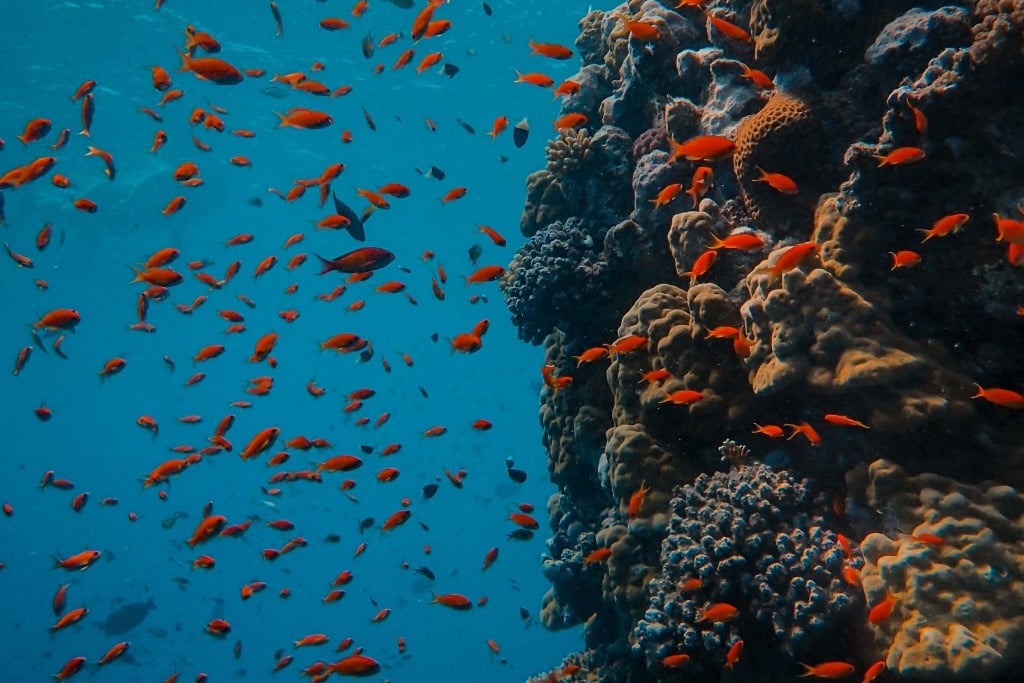
Coral reefs also protect against huge climate events. Whether you’re a believer or not of climate change, and I am a believer of climate change, we’re seeing an increased level of storms all over the world. Coral reefs protect the shoreline from storm erosion. If you don’t have those coral reefs, you’re gonna lose shorelines. We see this in the governance of a number of island nations like Bermuda. Bermuda has a number of very, I think, progressive and precautionary laws that protect their coral reefs because it’s such a small island and each acre in Bermuda is worth millions of dollars.
Because there’s so little of it, if they lose their coral reefs, they can lose their island in a matter of a hundred to 150 years. Hawaii is seeing this, and this is why you see a lot of progressive laws coming to the forefront in Hawaii, same thing through the South Pacific, other Caribbean islands are also taking note. Those reefs are critical for real estate values, for coastal and economic stability, for food.
They’re also a source for cosmetics in the next century. One of the things I’m trying to get the message out there is that the cosmetic industry has fossilized itself in the last 40 years. If you look at the original coppertone sunscreens in the 1980s, they’re basically the same formula as they are now.
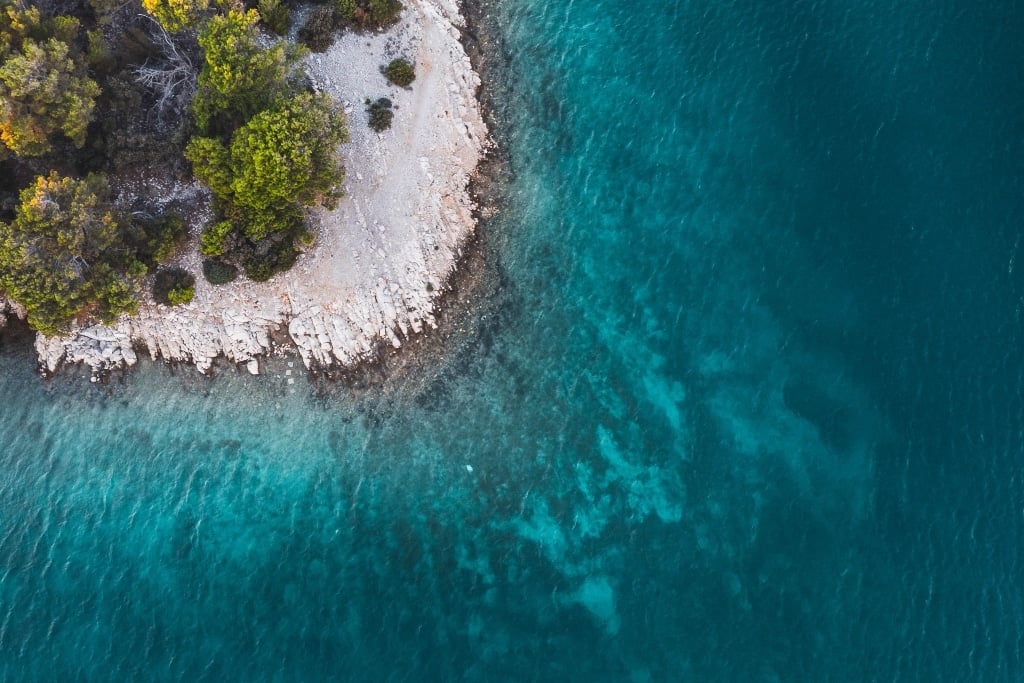
The idea was for COP 26, which was the UN climate change conference of the parties, to begin to recognize the important role of the ocean. It ultimately affects our climate and as ocean acidification increases, that threatens not just our coral reef, but our oyster reefs, kelp forests, it just affects the entire ocean. Our ocean can also be the greatest Co2 sink, it can take Co2 from the atmosphere. There’s a group in Scotland and England that are saying, “Hey, if Oxybenzones, and the herbicides that we’re dumping in the ocean, are killing phytoplankton – which is one of the biggest drivers of sucking down Co2 from the atmosphere and putting up oxygen back into the sphere – do we need to regulate these chemicals that kill plankton on an industrial level?”.
And I think they had a vision of genius. I think they’re spot on that we really do as a global community need to identify those chemicals that are going to be algicidal, meaning they kill algae, and reduce their input into the ocean, because again, it all flows into the ocean, all our sewage. That’s where the word sewage comes from; seaward.
Anything we buy as personal care products, what we eat, all are going to go into the sewage, into the ocean, and it has an impact on not just our coastal ecosystems, but also they’re called the polagic, the deep wide oceans. We need to get them to understand that marine plastic debris plays a horrific role in ocean ecology. Not just the big garbage patches that are in the middle of the ocean, but as that marine debris breaks into smaller and smaller particles, what we discovered is that organisms, fish, coral eat them, whales. And oftentimes those plastics have Oxybenzone on them and when an organism, a fish swallows it, it’s poisonous to the fish. It’s poisonous to the sea cucumber, and it makes them ill and it eventually can kill them. All of these things kind of mix together into a terrible toxic soup.
I think a number of scientists around the world have recognized that we need to focus on the ocean and not ignore it. It is important to think about the atmosphere in itself and our use of petroleum to fuel cars and to produce energy, but also for plastics.
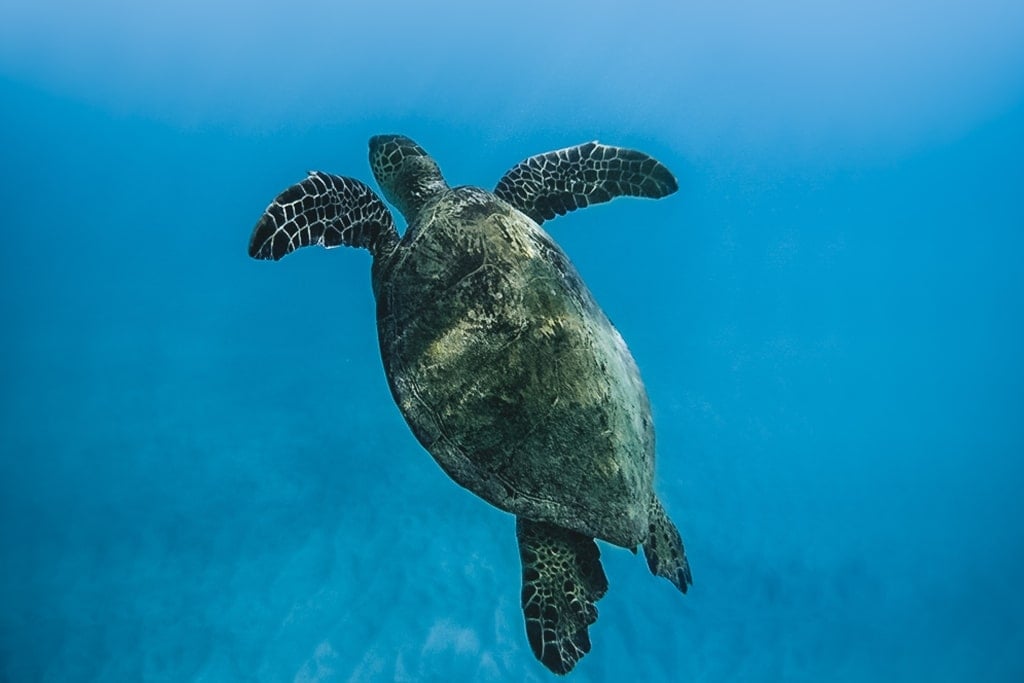
We’re actually trying to get a carbon footprint for sunscreens because in Hawaii you get a lot of sunscreens. Millions of dollars every year are spent on sunscreens. All of those containers remain in Hawaii. We really need sustainable packaging with sunscreens. And again, this is where the industry can lead the way and come up with sustainable packaging, especially for ecologically sensitive areas.
You know, perhaps they don’t wanna sell their plastic packaging in Hawaii. They wanna sell their plastic packaging in Iowa, Nebraska, or Bremen, Berlin and Düsseldorf, but in the coastal areas, maybe not at all. Maybe come up with bamboo or glass packaging, something that is way more sensible and sustainable for that ecological area.
“That’s our goal, that the nations of the world begin to understand the role the ocean plays in climate change and in climate stability and climate resiliency and how all factors, whether it’s plastic manufacturing, chemical pollution, petroleum and coal use for fuel, plays an important role and how it all has to be addressed together. The picture is even bigger than they thought.”
– Craig Downs
In the older COP meetings we’re thinking about the atmosphere, we’re thinking about how much carbon we emit, what’s the carbon footprint in the United States, what’s the carbon footprint in Germany.
Now we’re thinking about what is the United States, what is Germany putting in the oceans, especially from products that are made in China or other parts of the world and when you import them, they still have a cost to the ocean.
Can we do things more locally? That’s one of the things we’re trying to push for: local is better. Local is not just potentially more economically stable in a very crazy world right now. A lot of local things can be utilized and used to meet our everyday product needs, to lower our carbon footprint, to lower our chemical pollution footprint and provide local jobs, provide for the local economy.
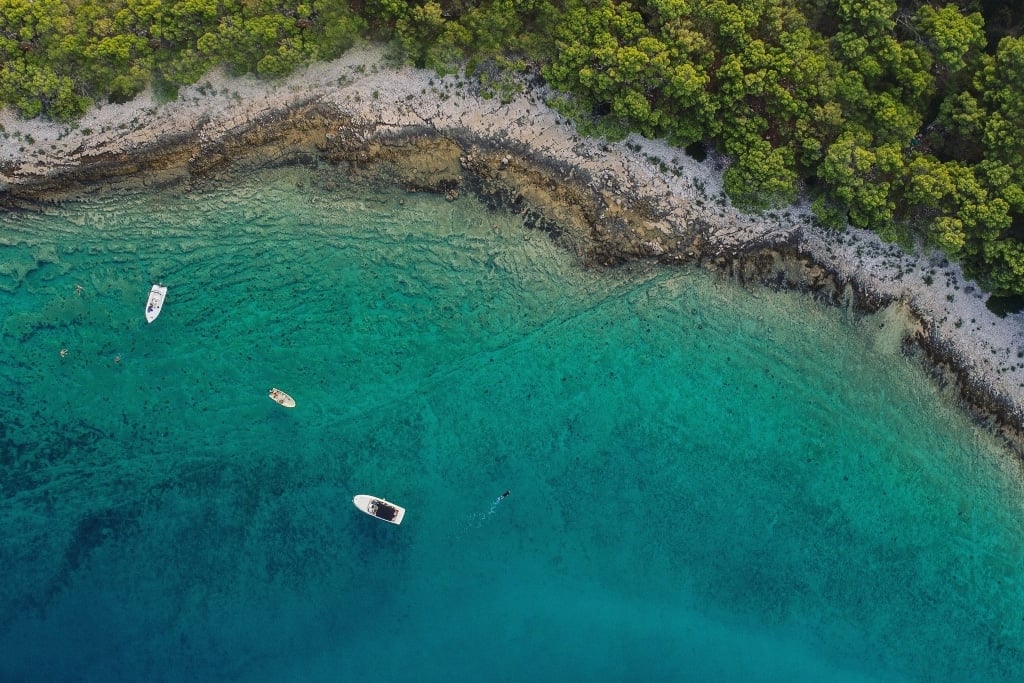
Absolutely. We think those are all like very interesting avenues to pursue, and it all plays together in the end. If you go for one positive path, you'll have other positive side effects.
Since you already mentioned the sunscreen ban on Hawaii, we are interested to hear what you think about the ban as it is now and how you would potentially expand it.
The ban in Hawaii right now only bans the sale of Oxybenzone and Octinoxate products. And what we’ve noticed over the last two years is less and less people using Oxybenzone, buying it in Hawaii, but we were finding out that tourists bring their sunscreens with them and they still contaminate these areas.
“Even after the sunscreen ban went into effect, it was January 1st, 2021, this summer we’re still detecting Oxybenzone traces in areas where we didn’t think there would be.”
– Craig Downs
We discovered, just by walking along the beach and noticing what the tourists were using, they’re bringing sunscreens. The first two bottles per person are usually coming from their place of origin. We’ve actually found a lot of German sunscreens for example.
Germans love Hawaii. I know of a lot of German citizens that have second homes or vacation homes in Hawaii. I’m always happy to talk to a German person on the beach, because then we talk about food. We talk about beer, how bad American beer is, that kind of thing. But they all bring their sunscreen and we were surprised to find European sunscreens that are not allowed in the US, but we found them in US waters.
We need to get the message out to the tourists from whatever country they come to, whether it’s from China, Japan, Germany, England, Australia to really reduce the amount of chemicals that they bring with them.
If they find you using it on the beach, there is going to be a fine and there’s going to be an educational discussion with you to educate you, to explain, “Hey, this is not good. We want you to come back and see these coral reefs every time you come back here, we want your kids to see it, grandkids to see it, but we need you to participate in that sustainability.”
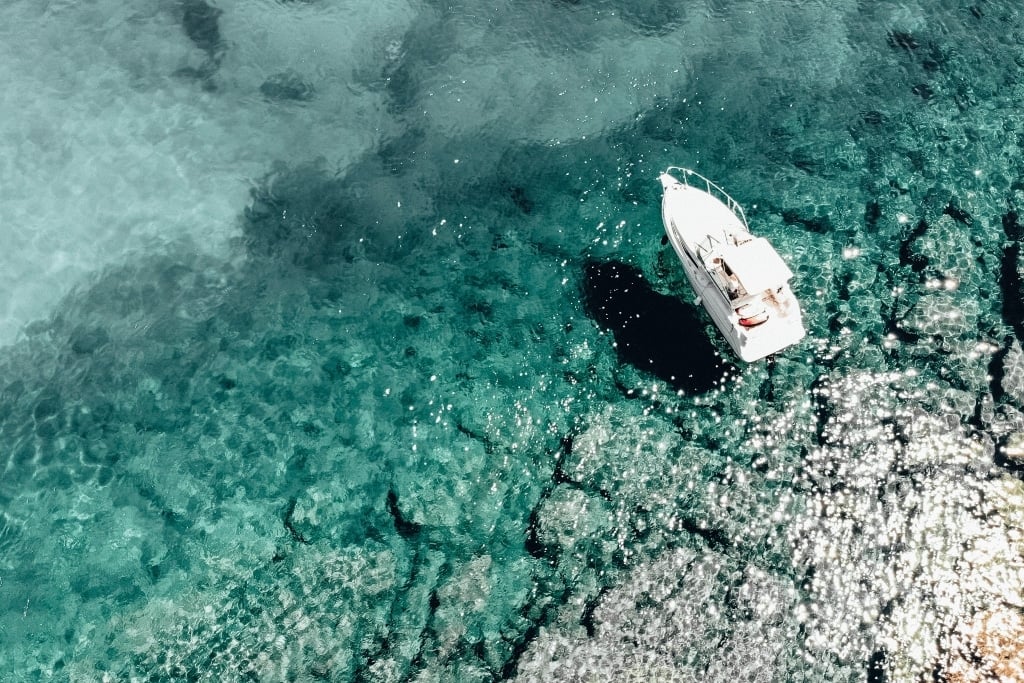
“That’s one of the biggest messages I have for your audience: by purchasing an environmentally safer sunscreen, you are participating in conservation of these ecosystems, whether it’s on coral reefs or in lakes and rivers, like on the Rhine.”
– Craig Downs
Because we see high levels of sunscreens in Alpine lakes. We see high levels of sunscreens in the Baltic Sea, in the Rhine river. It’s getting in there and having an effect. And again, I think the consumer, your audience, can really begin to change that and just elect to purchase a safer sunscreen.
It has been difficult getting the word out because there seems to be a media blackout in the United States about safe sunscreen. We don’t get a lot of media outlets willing to talk about it for whatever reason. And so, your blog, your interview here could be a really good method or means for getting that message out.
I think what we are seeing in Hawaii is starting to spread across the world. I know a number of Balkan nations like Croatia, they’re thinking about bans, even some areas in Russia.
Thailand has just banned Oxybenzone, Octinoxate, Camphor from all their conservation parks. Mexico has done it, it was one of the first countries to ban it. And I think they’ve banned it in all their natural conservation parks.
It’s just spreading all over the world. Tuvalu, a small little island nation in the south Pacific, the Marshall Islands, Curabadi, Saipan, Palau have all enacted some measure of banning sunscreens because they do want to preserve their coral reefs as well as sustain their tourism industry.
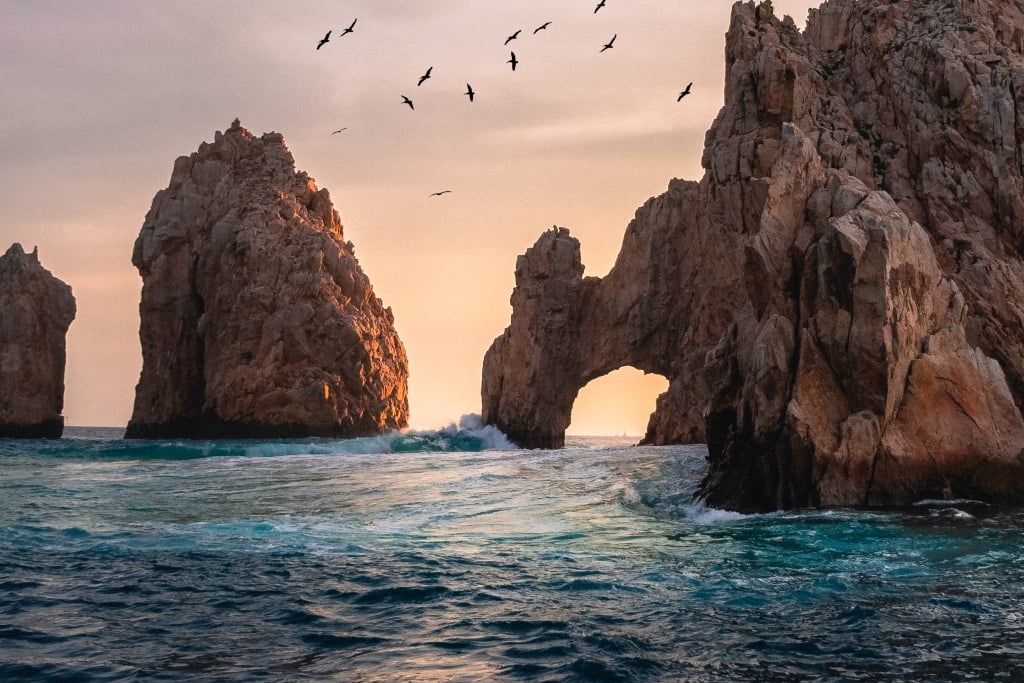
I would do a carrot and a stick.
“What I would do is regulate and ban probably all petrochemical sunscreens, because I have not seen enough evidence to convince me they’re safe for humans, nor are they safe for the environment.”
– Craig Downs
For example in the European Union, you use Tinosorp SMN. I don’t think the ecotoxicological studies were done well because it’s such a difficult chemical to work with, even to formulate with. But what has me very worried is, for example, one of the tinosorps is a triazine chemical. It’s related to the herbicide Atrazine, which we know is an endocrine disruptor. But even more alarming, it doesn’t degrade. It’s not biodegradable. It’s a persistent organic pollutant, it will last in the environment for hundreds and hundreds of years. That’s a bad choice to make. We do need to create more biodegradable formulas, and that might mean that you need to buy a brand new bottle of sunscreen every year, but that’s what it takes, like organic food or food without preservatives. They’re going to decay a lot faster, but that just means they don’t contain those chemicals that prevent that decay that can be harmful to you or to the environment.
In some ways, it means industry will have to produce more products to keep up with making safe, sustainable products, and that they’re renewed every year on the shelf. And people really do need to throw away their old sunscreens. The best thing to do is go and buy a brand new bottle of sunscreen and use it.
And banning the chemicals that are not proven to be safe for a fact is a good thing, but I think countries also need to incentivize local companies through either tax incentives, tax deferments or innovation grants to come in and partner with local people to come up with sunscreens that are safer and allow them to keep more of their money, especially in the beginning. If you’re going to sell a sunscreen you can tax it at the point of sale, but don’t tax the profit of the company, allow them to invest that. And they need to shove that investment into sustainable practices, whether it’s research or adopting a new sustainable packaging or even helping with the local government in coming up with a better way of managing their waste, whether it’s the packaging waste or their sewage waste.
I think there’s a number of creative economic ways to create incentives to be sustainable. But at the same time, if you can’t prove that it’s safe and effective, it shouldn’t be out there.
What’s weird is that consumers want sustainable products. They want clean products, they want blue products. That’s what they want. According to a lot of these focus groups and all these marketing surveys, 60% to 70% of the consumers want that. They would prefer a sustainable product if it was the same price.
So I think governments, if they really want to be sustainable and they want to increase resiliency, especially in light of COP 26, and what will be coming down on COP 27, then give companies that are trying to be sustainable a tax break to make their product equal in price to a non-sustainable product. O if you’re going to have a non-sustainable product for sale, then increase the tax.
We as a consumer are going to be paying for that unsustainable product one way or another. And so this then allows the consumer based on the qualities that the consumer wants to make a purchasing on equal price footing. They’re gonna go with a more sustainable product. I think sunscreen bans and economic incentives are the way to go.
About Craig Downs
Craig Downs, PhD, is a renowned scientist with a passion for researching the effects of global warming and toxic sunscreen chemicals on our oceans in order to protect marine wildlife and especially corals from external stress. Craig Downs is the Executive Director at the Haereticus Environmental Laboratory – a non-profit dedicated to increasing the scientific, social and economic knowledge of natural environmental habitats in order to better conserve and restore them. He is also a guest professor at Sorbonne University in France and Chairman of the Board at the Global Coral Repository.
Want to continue reading?

